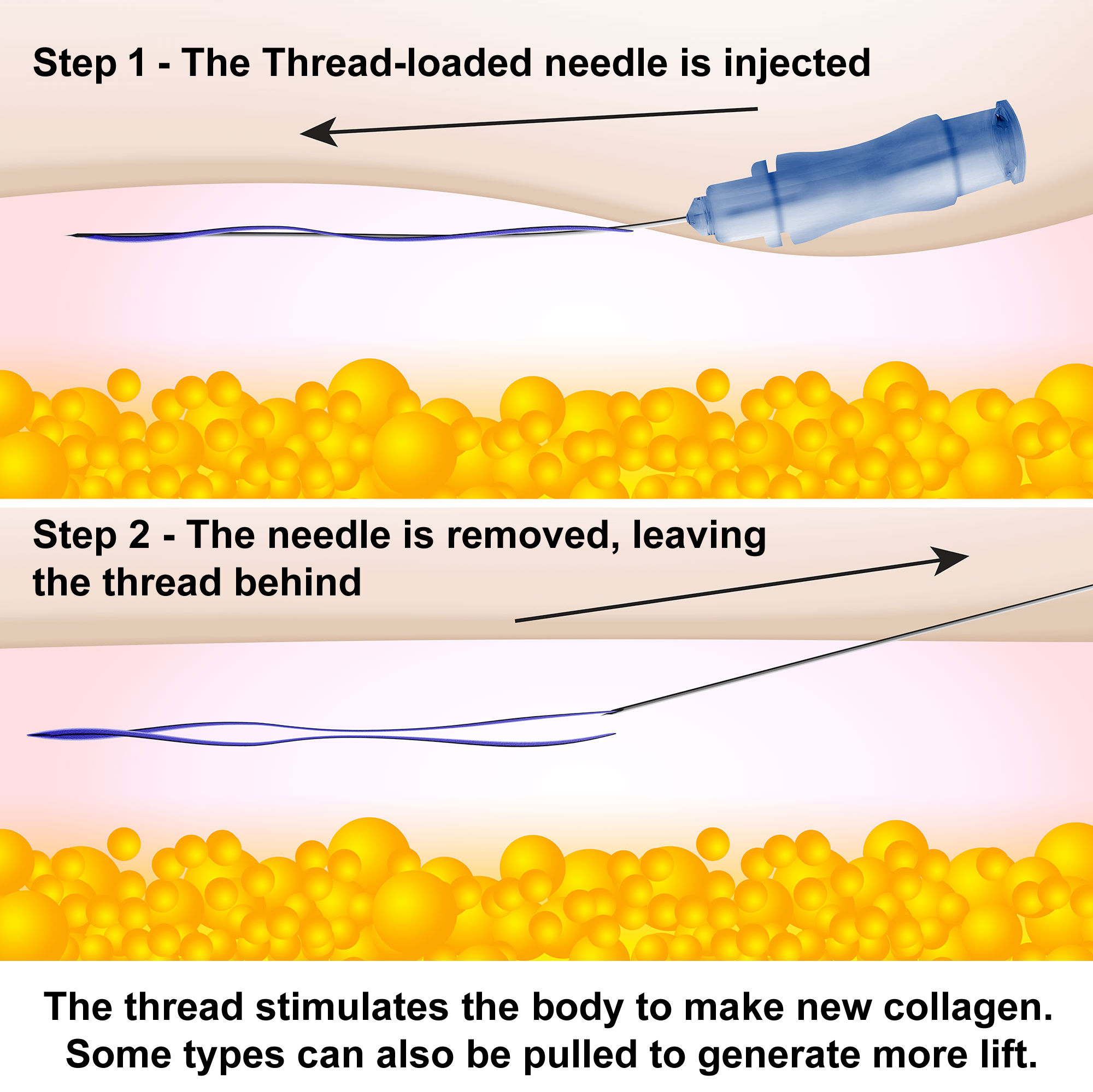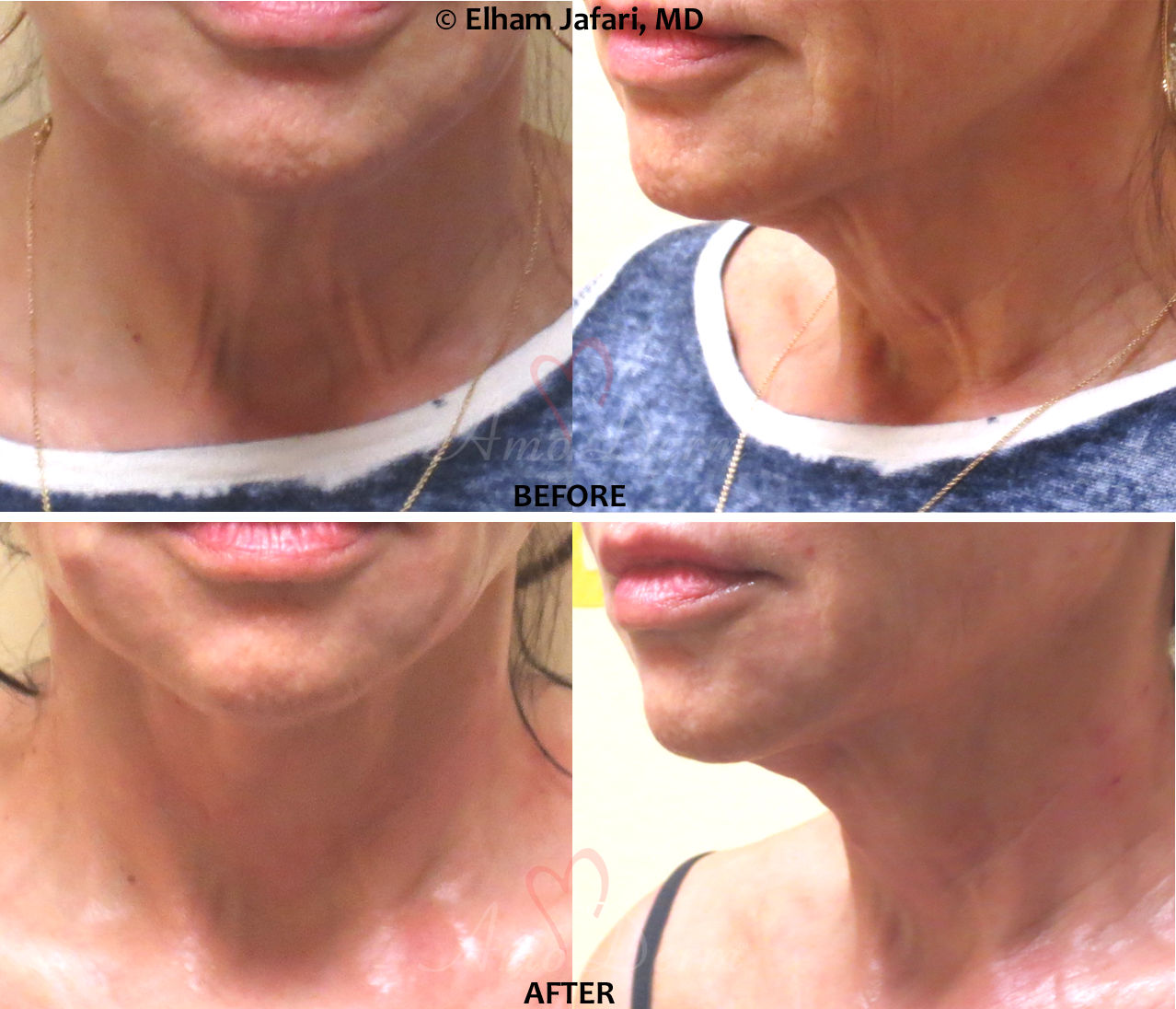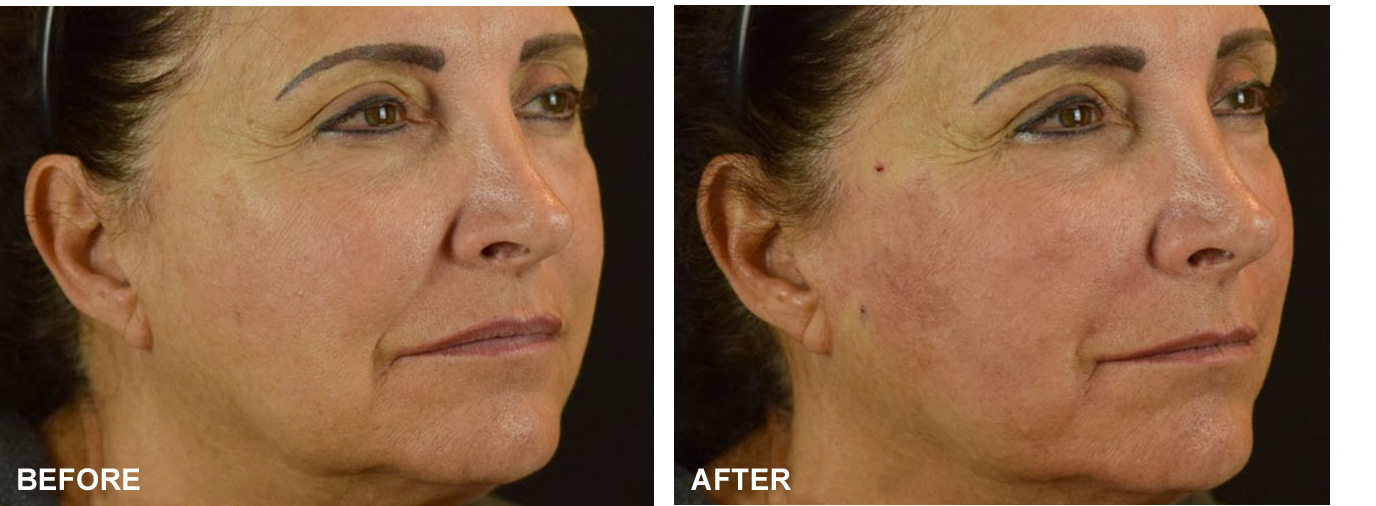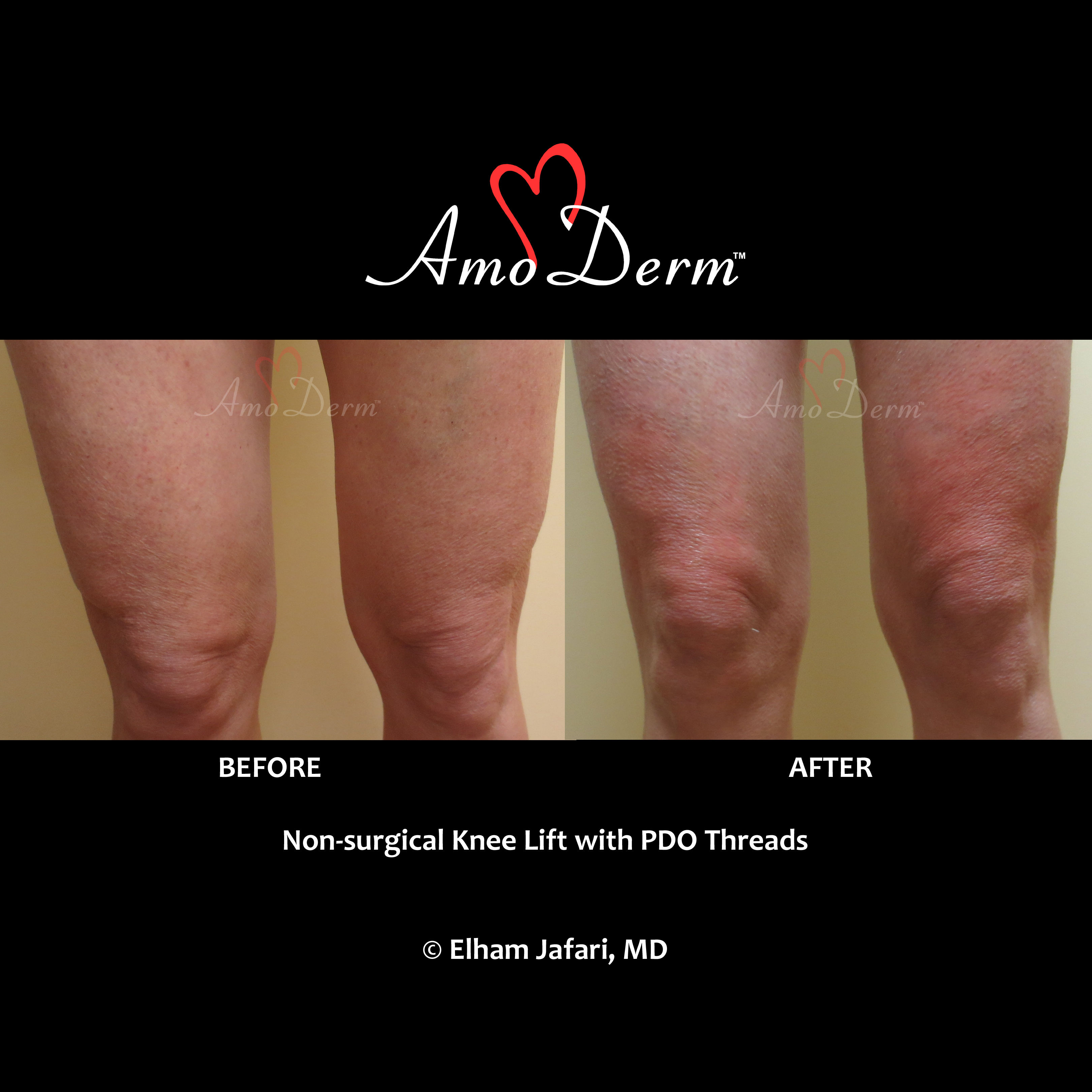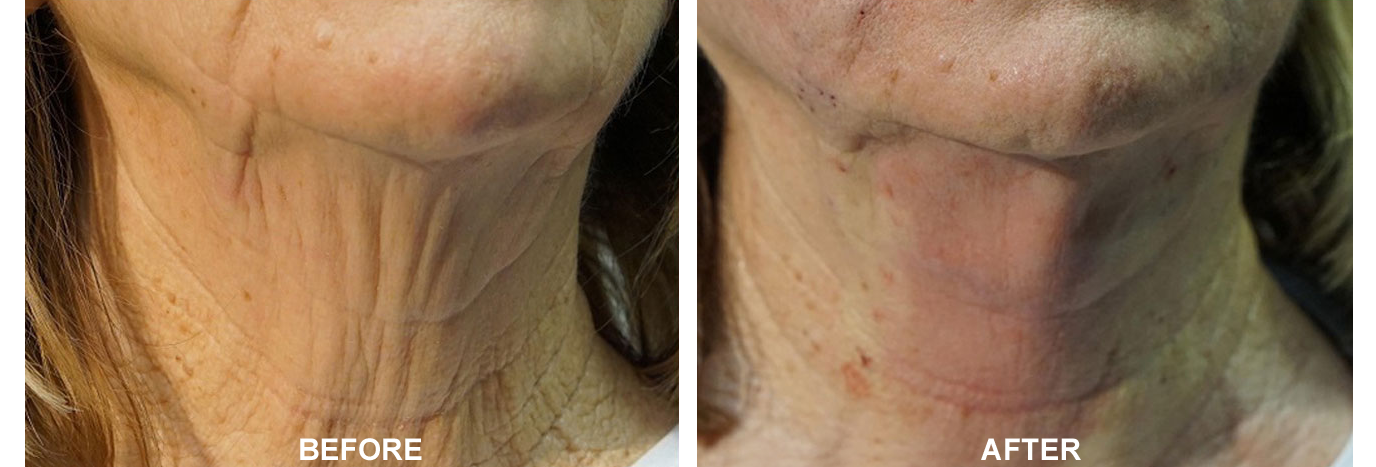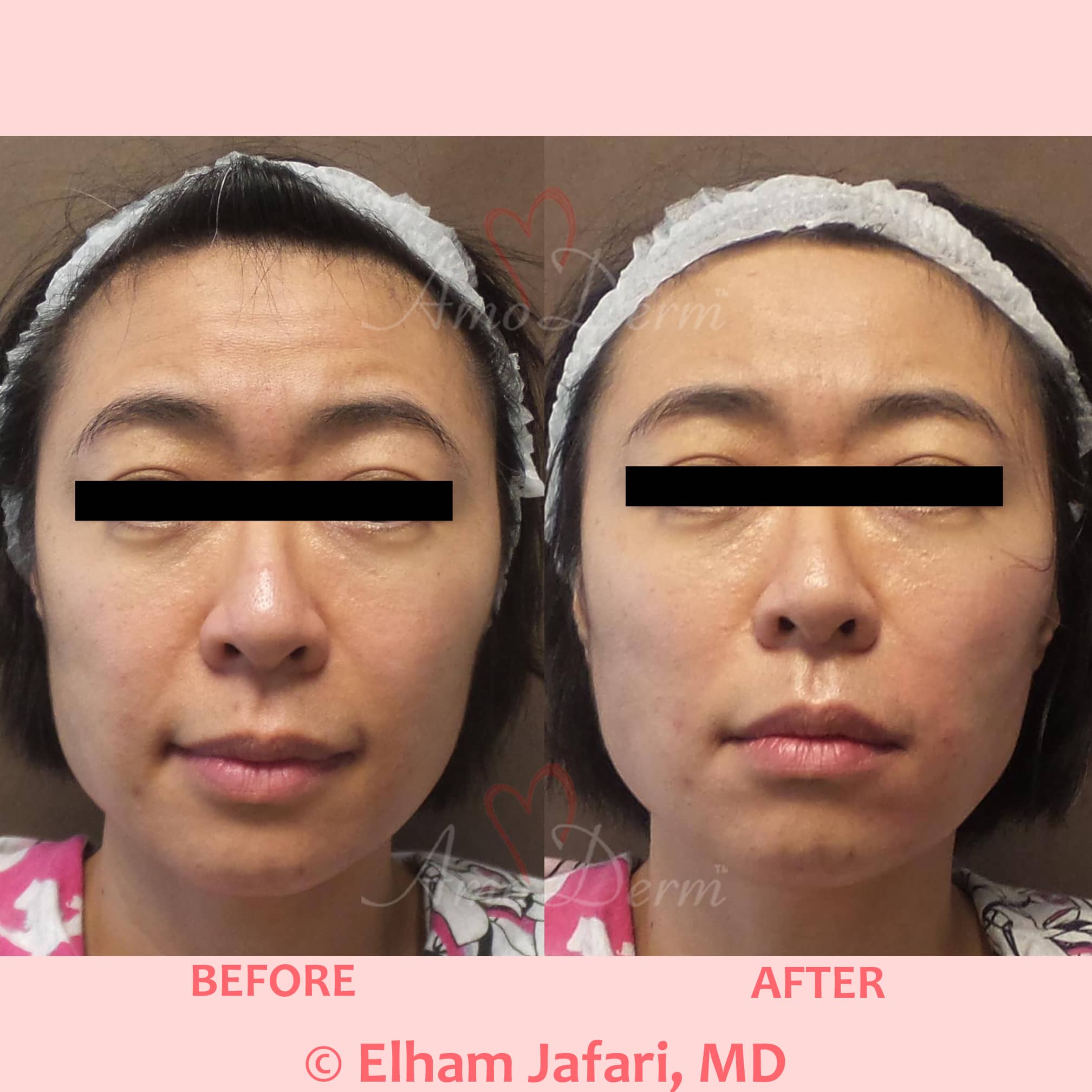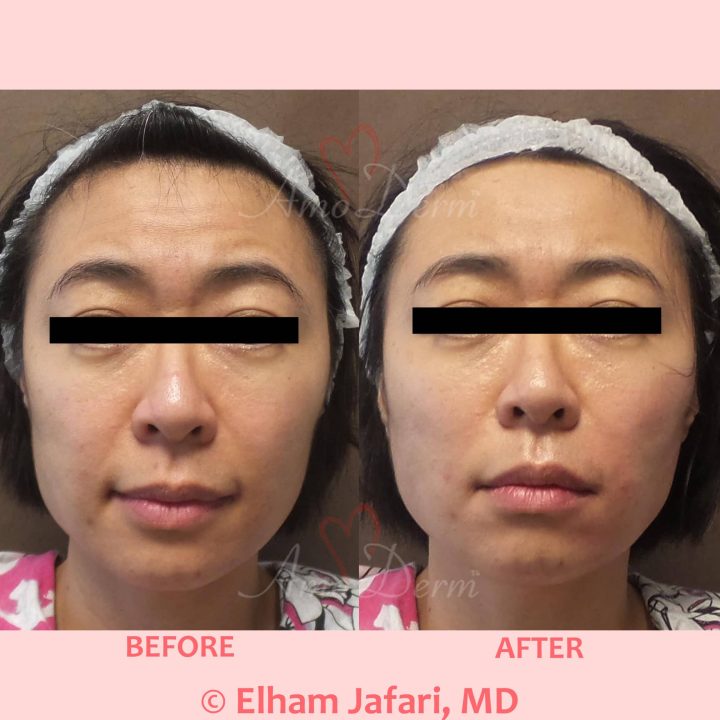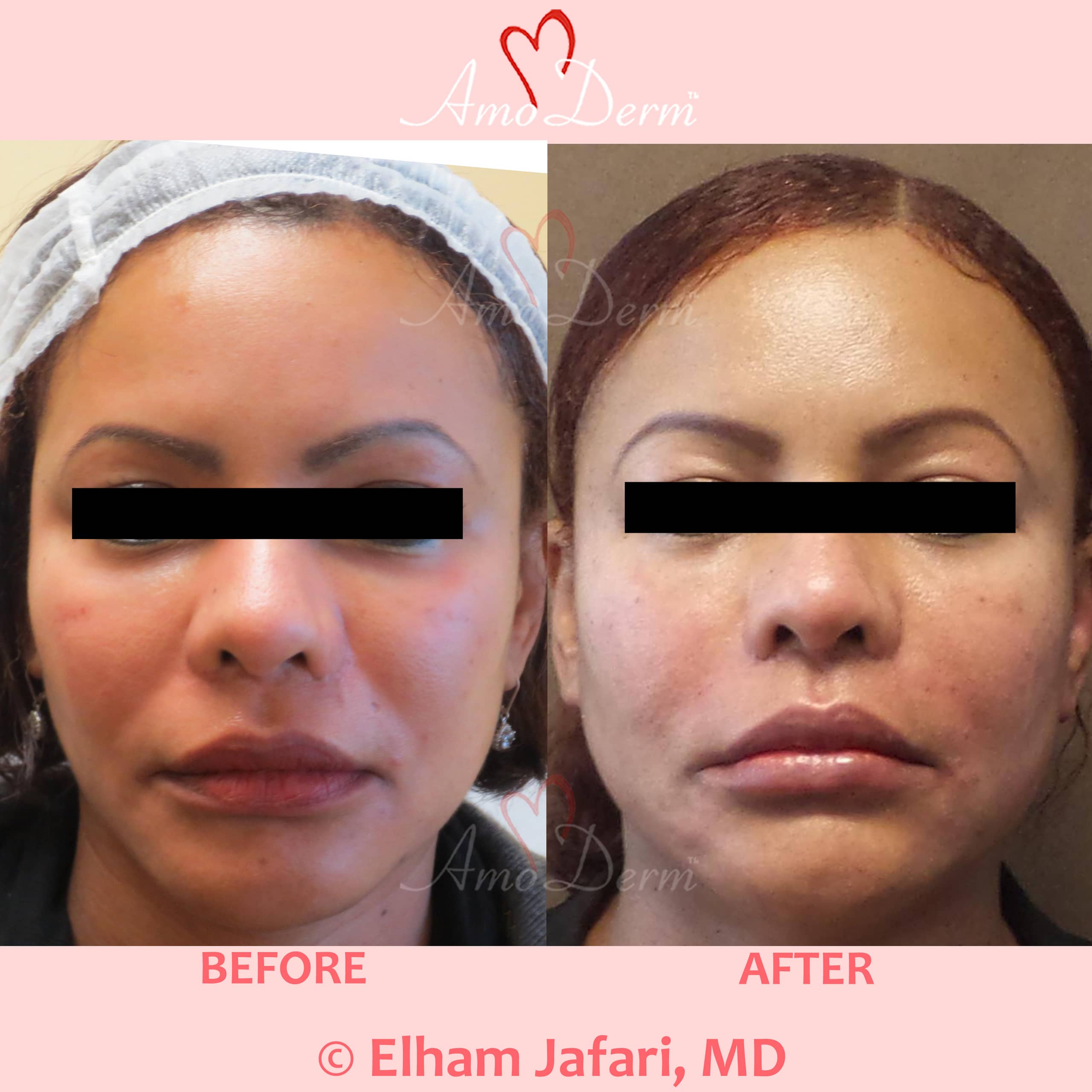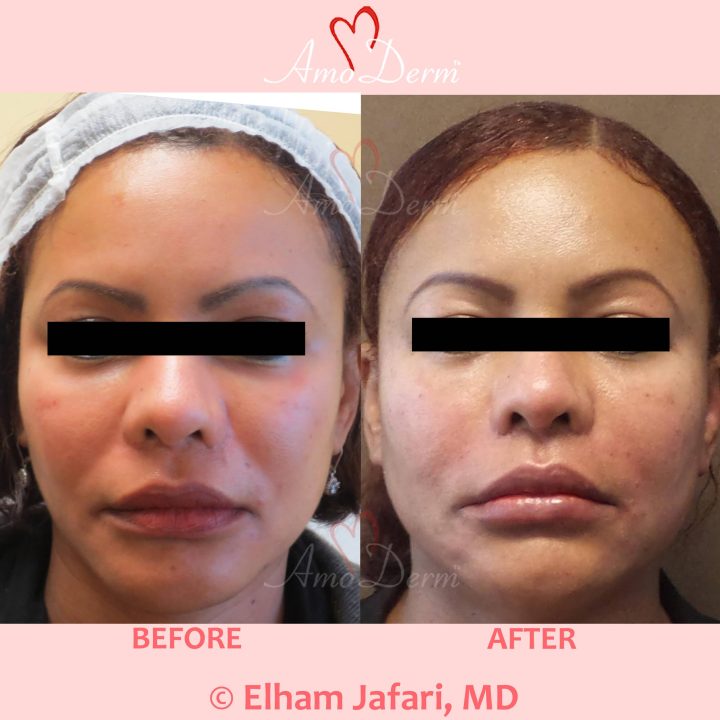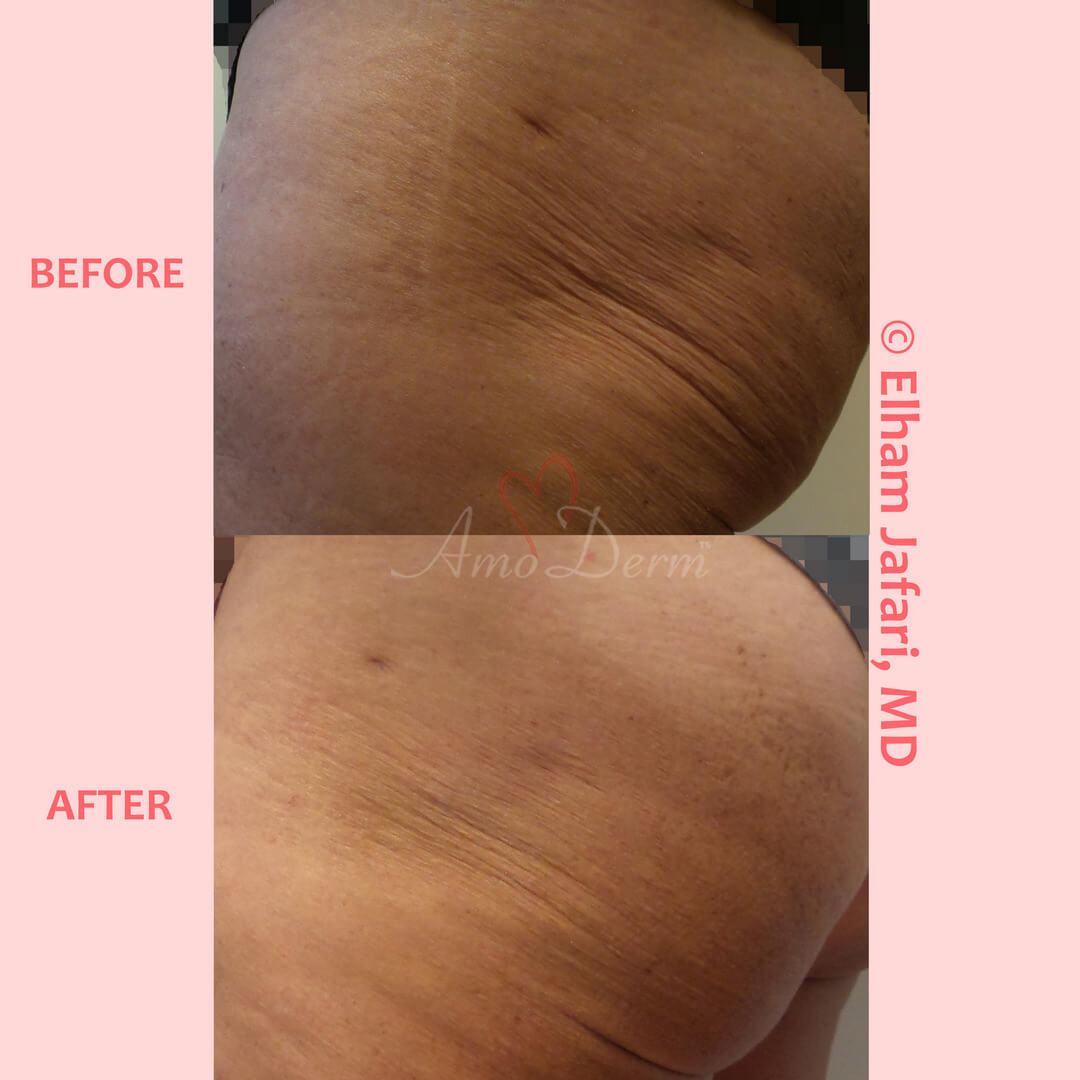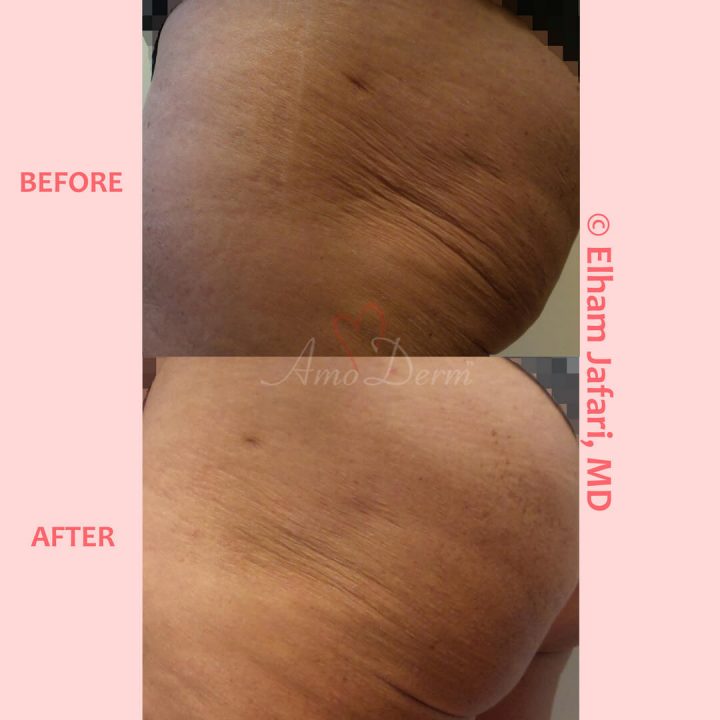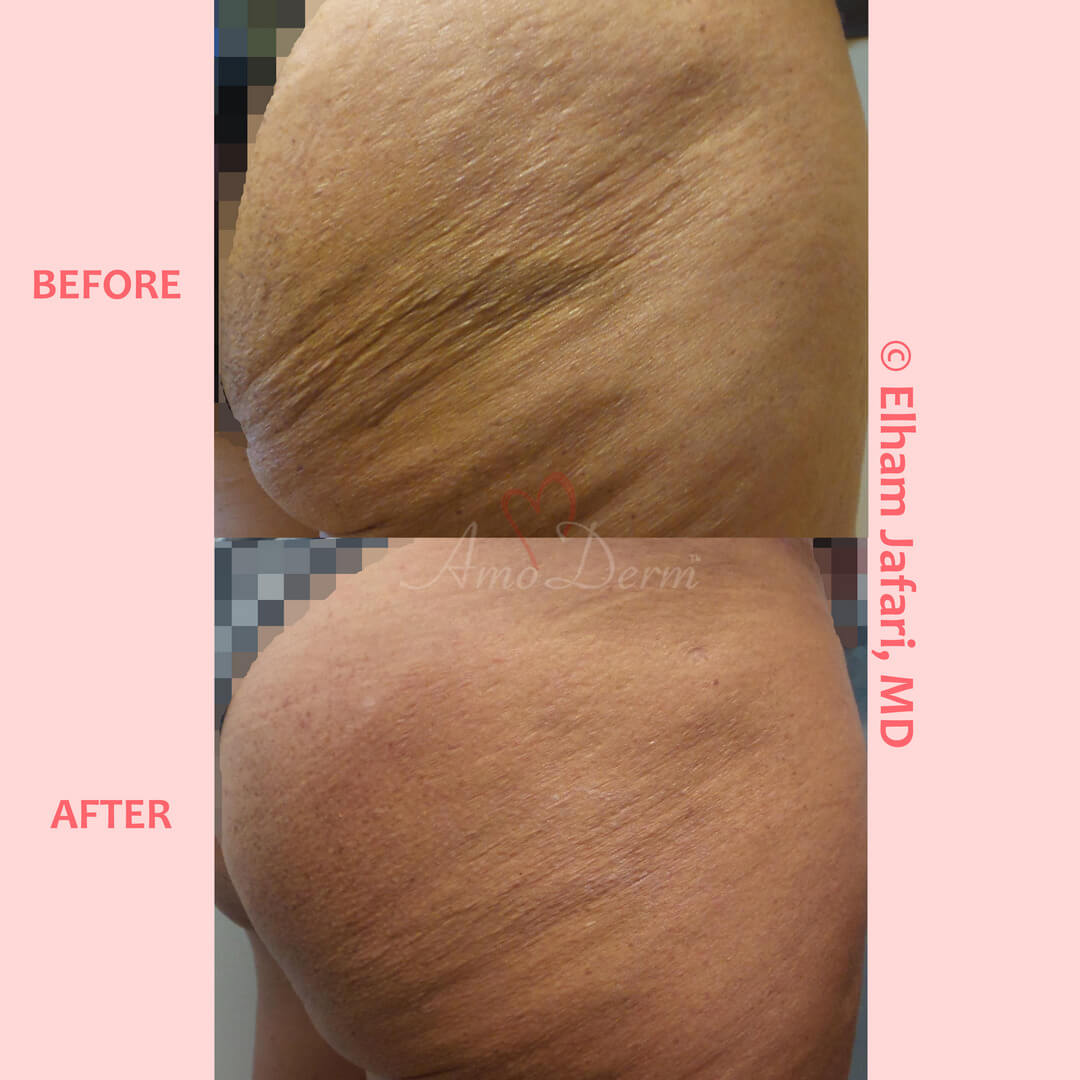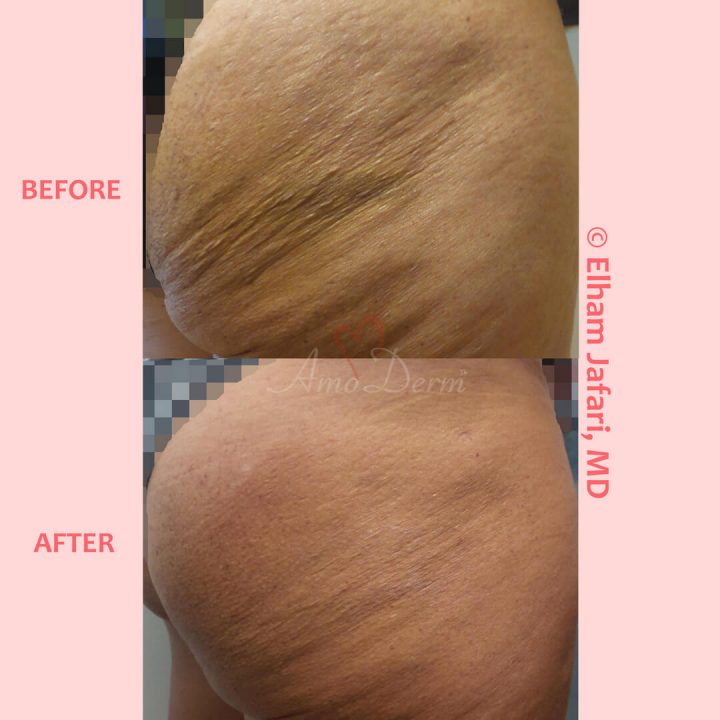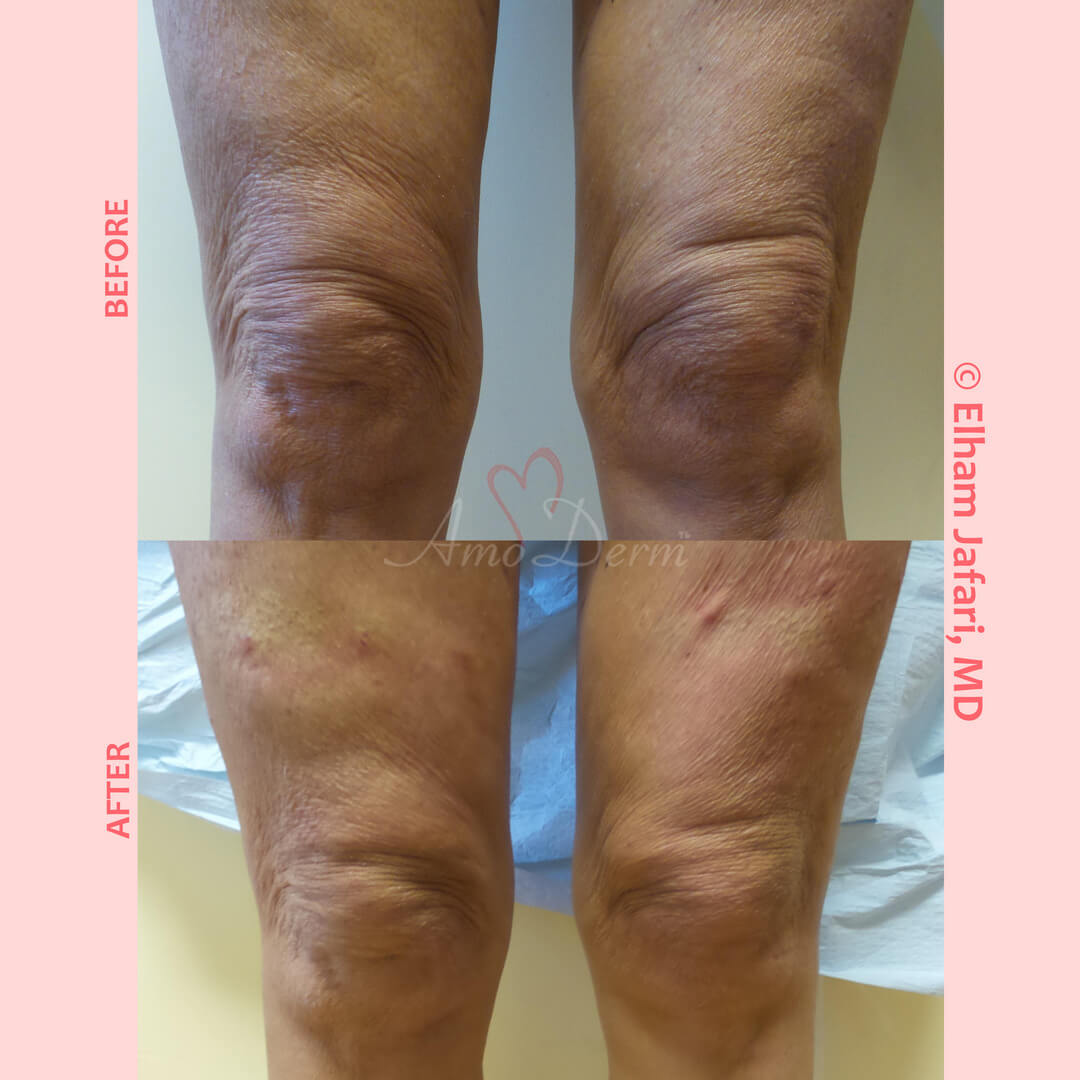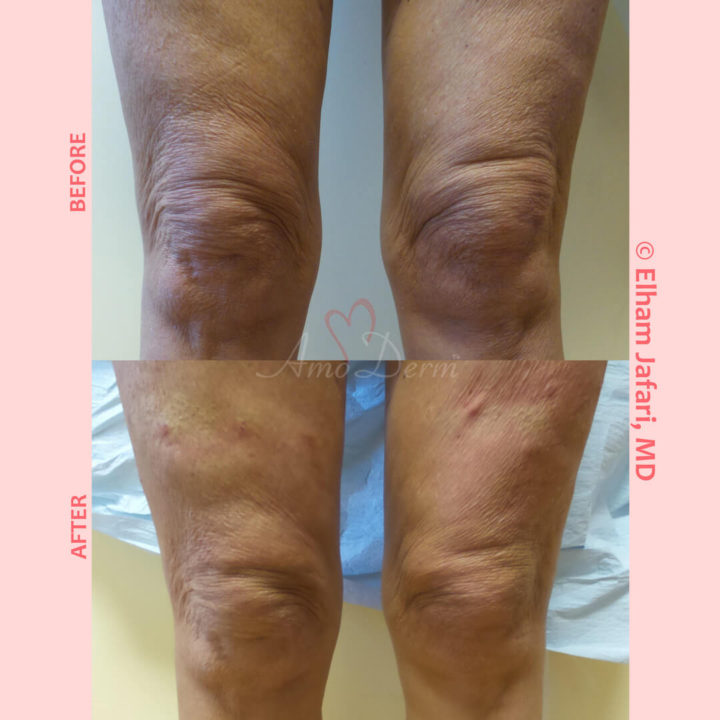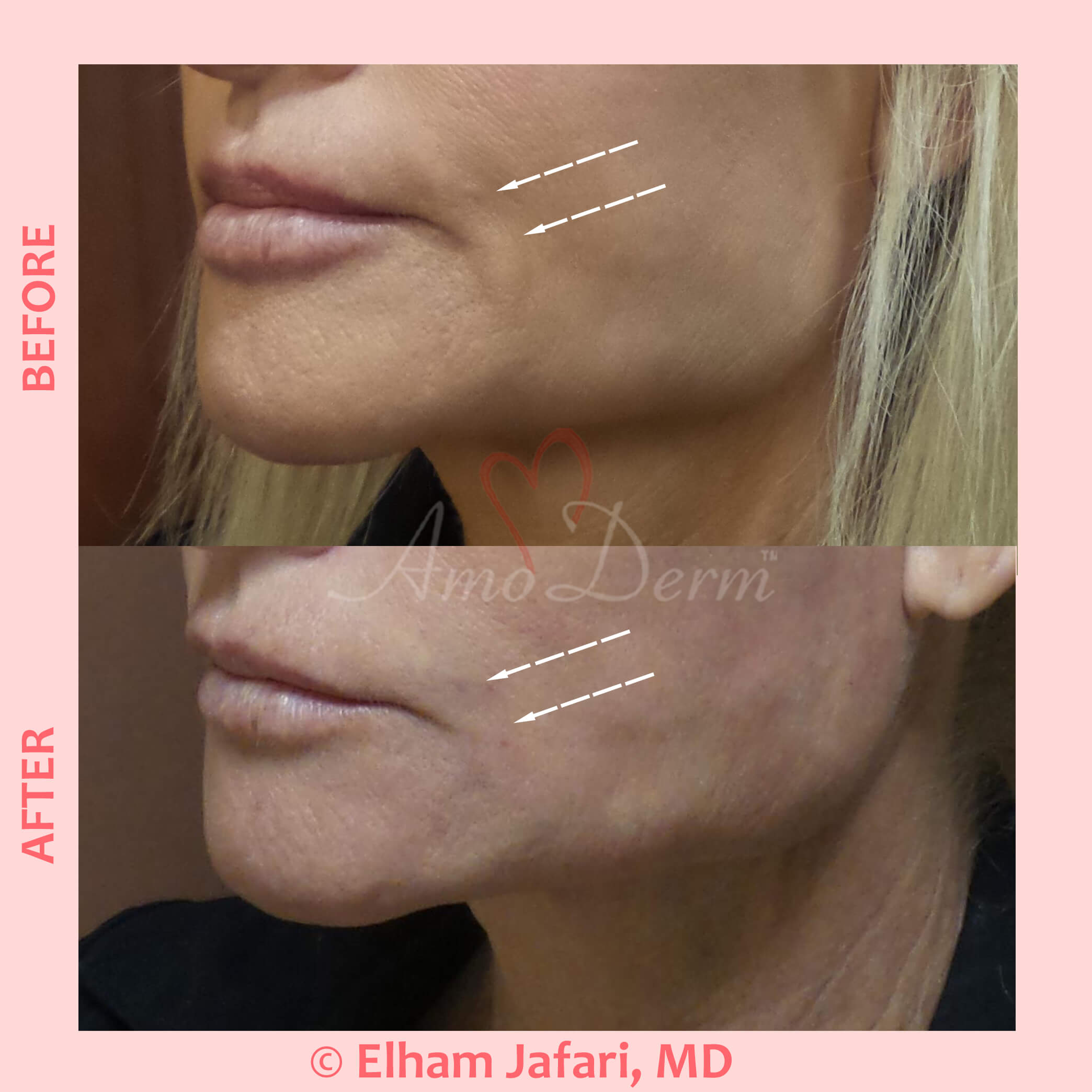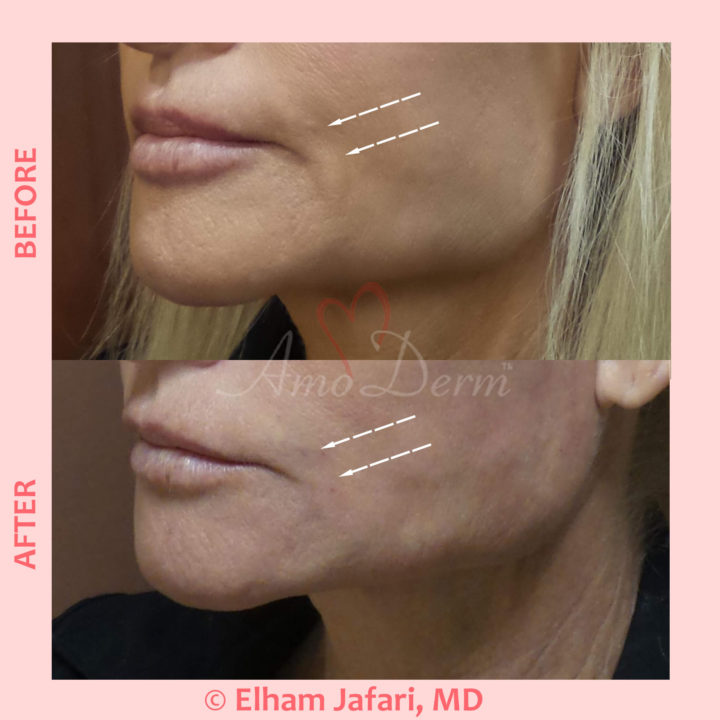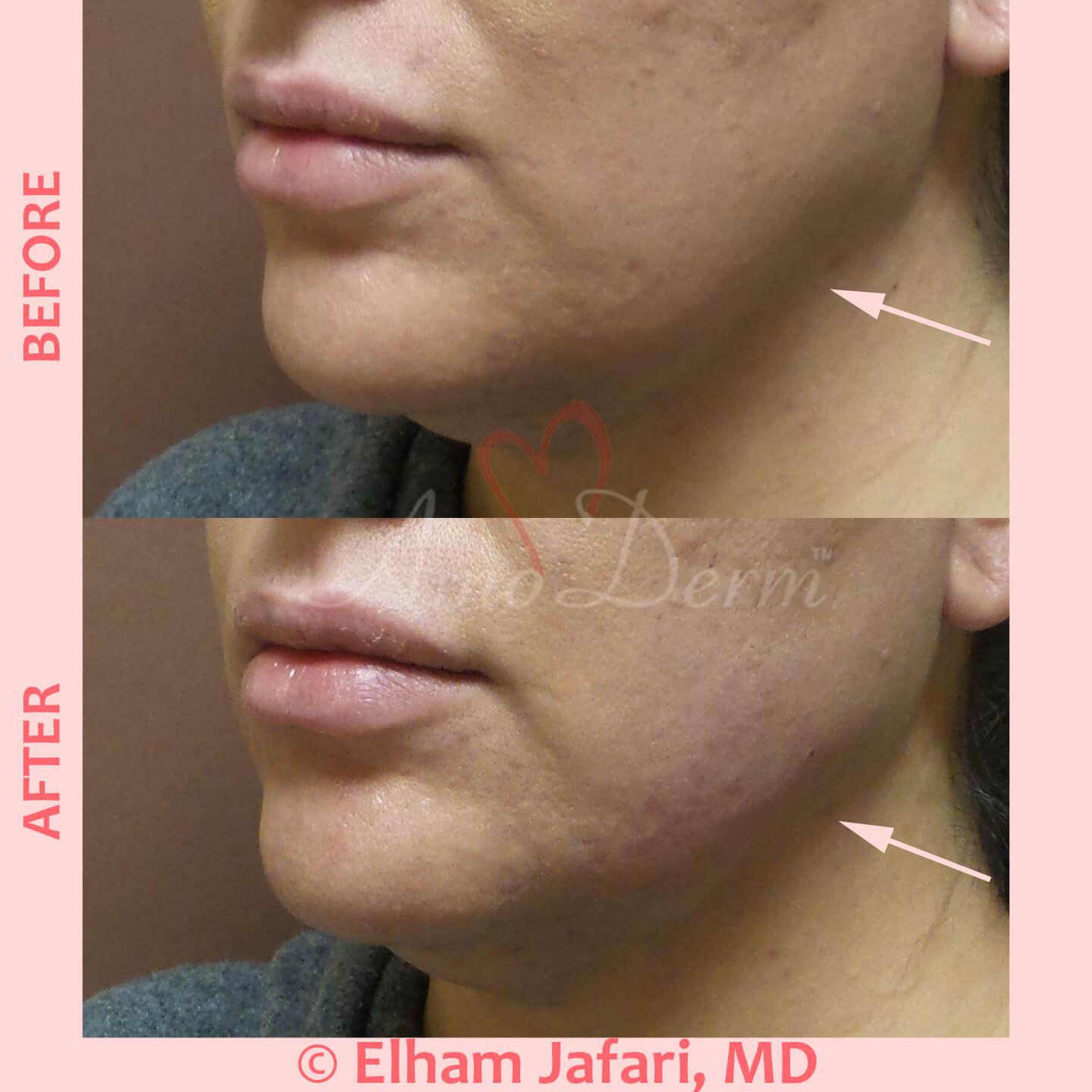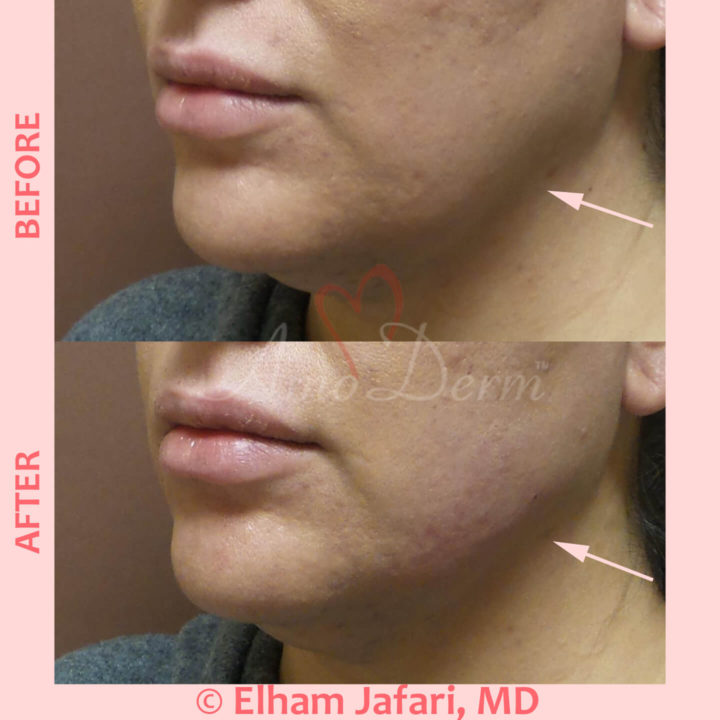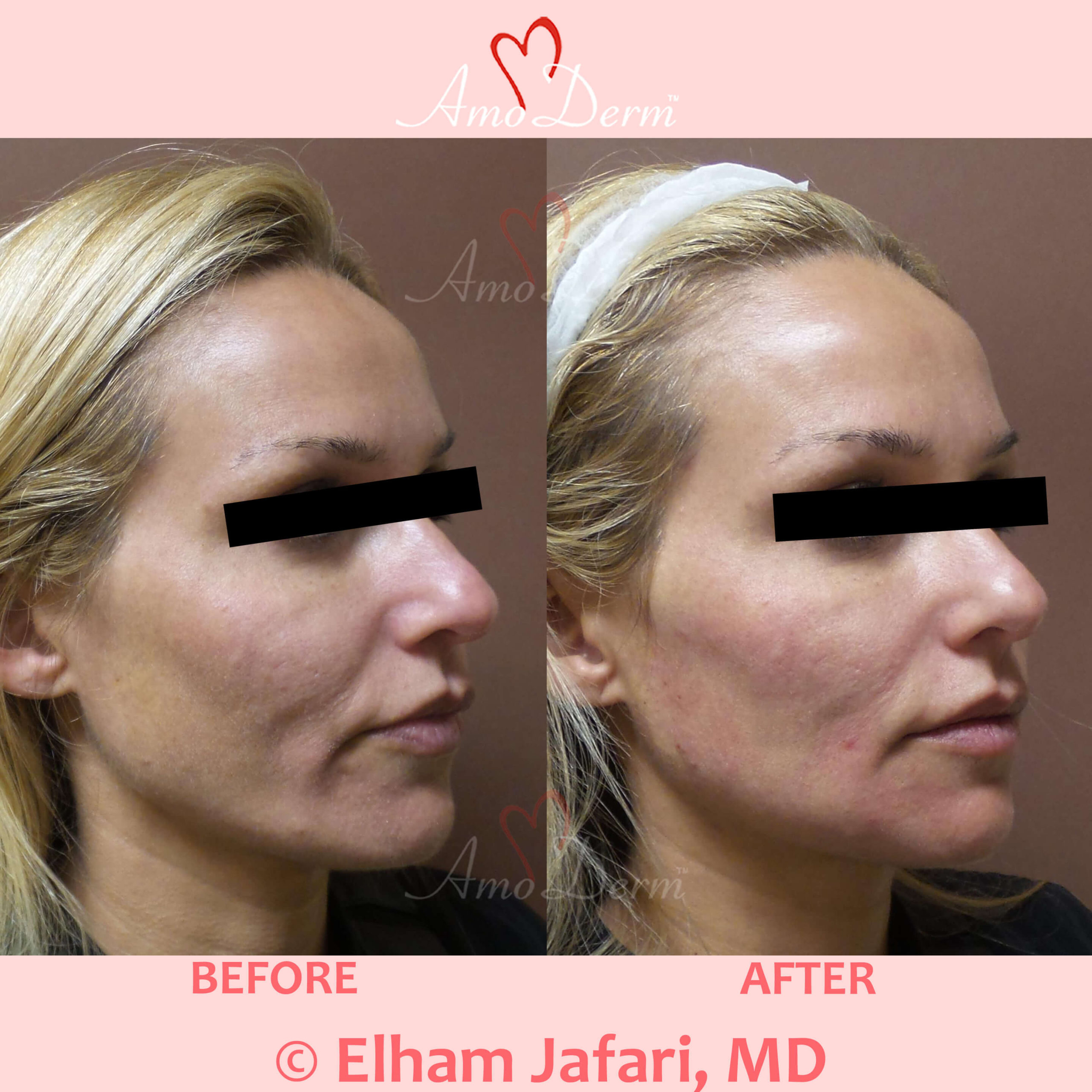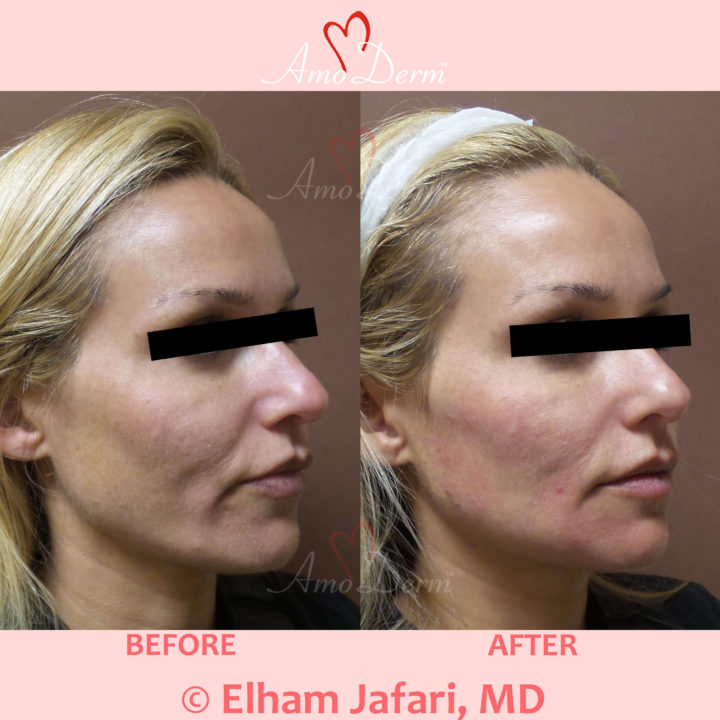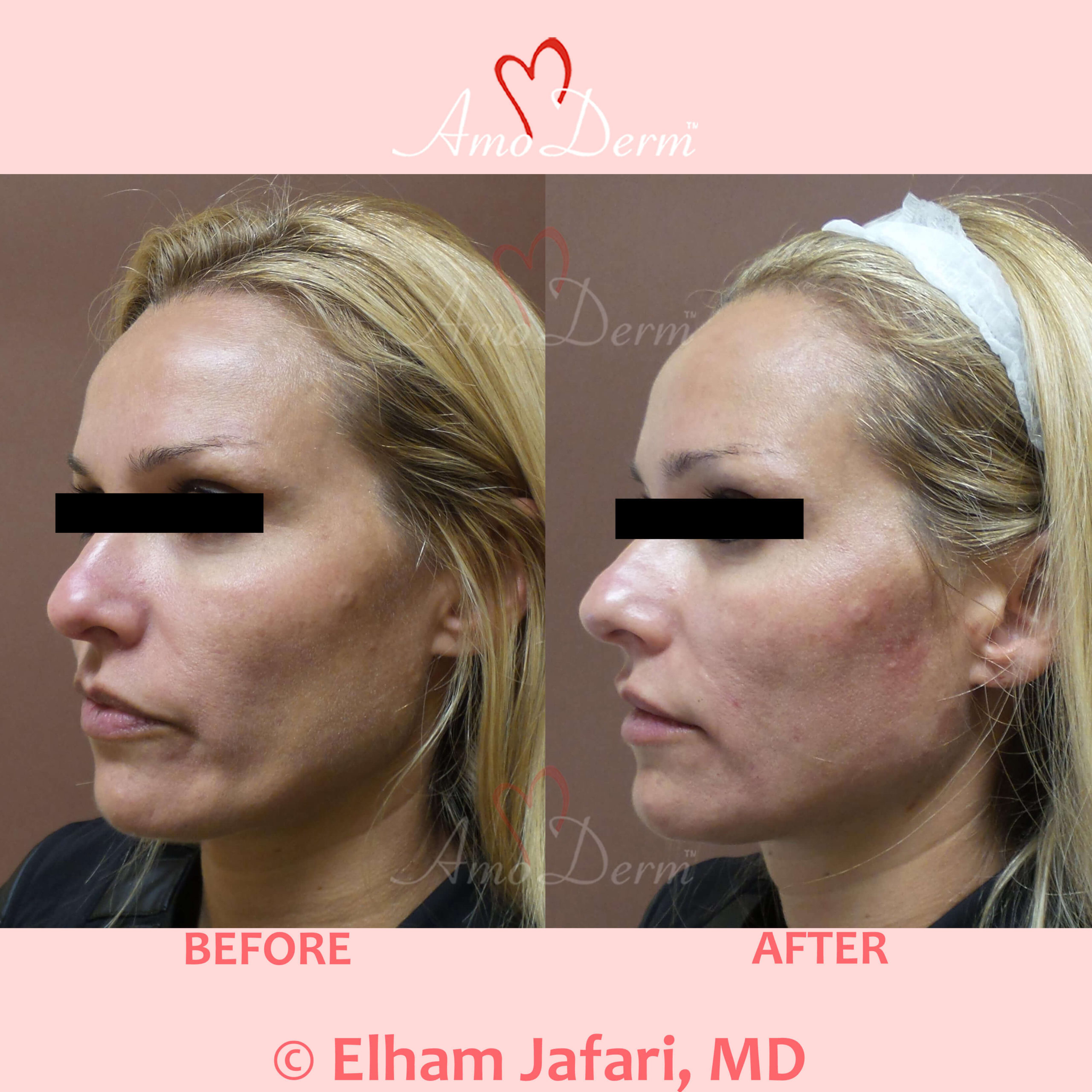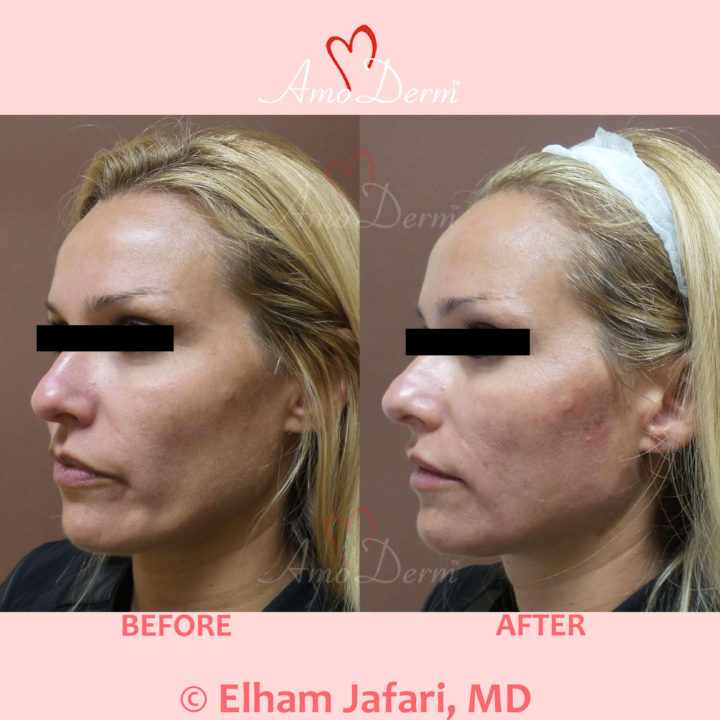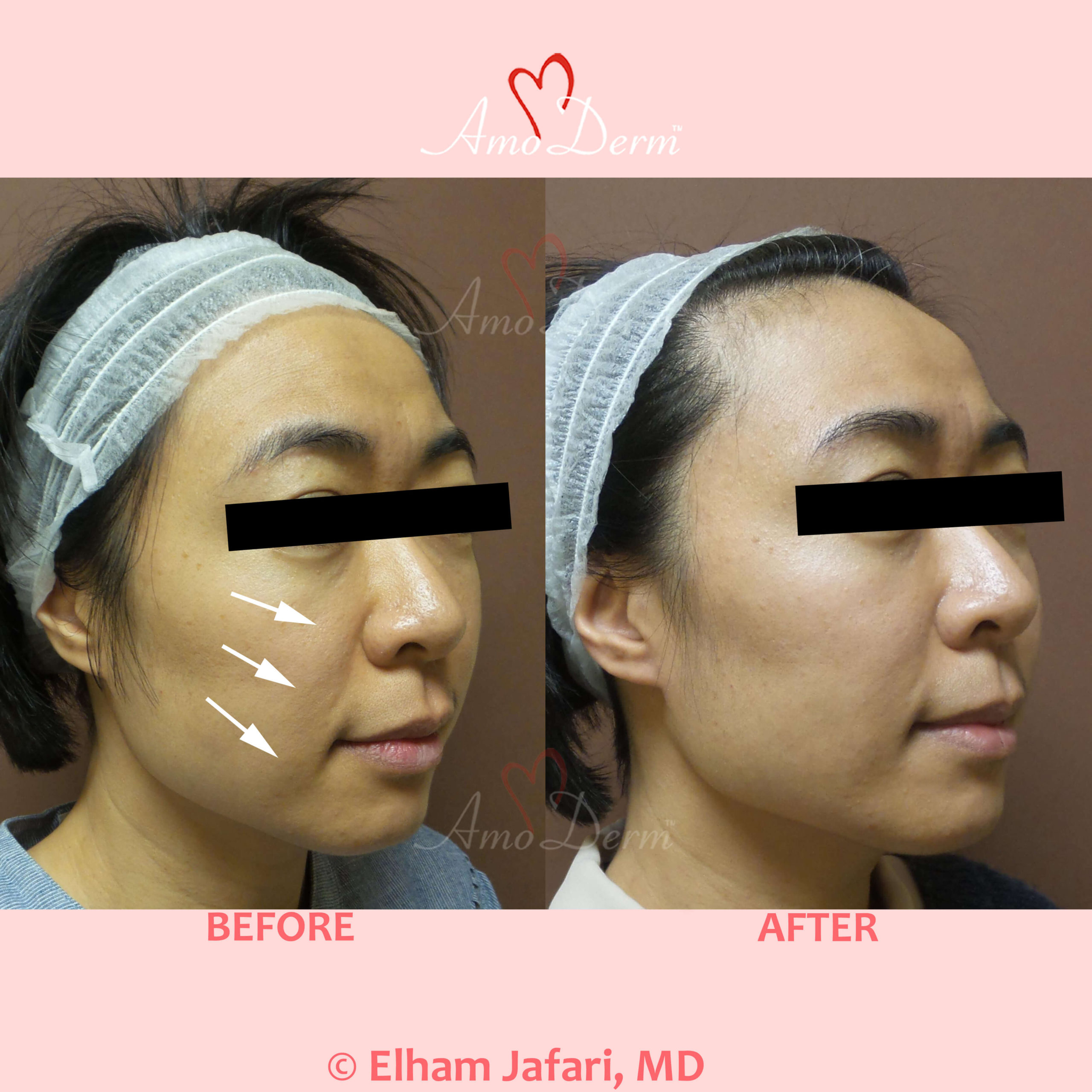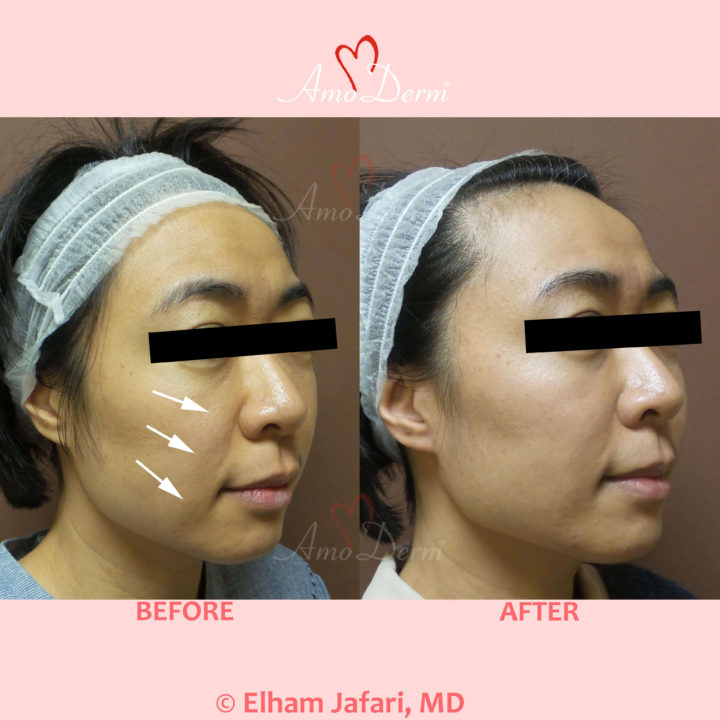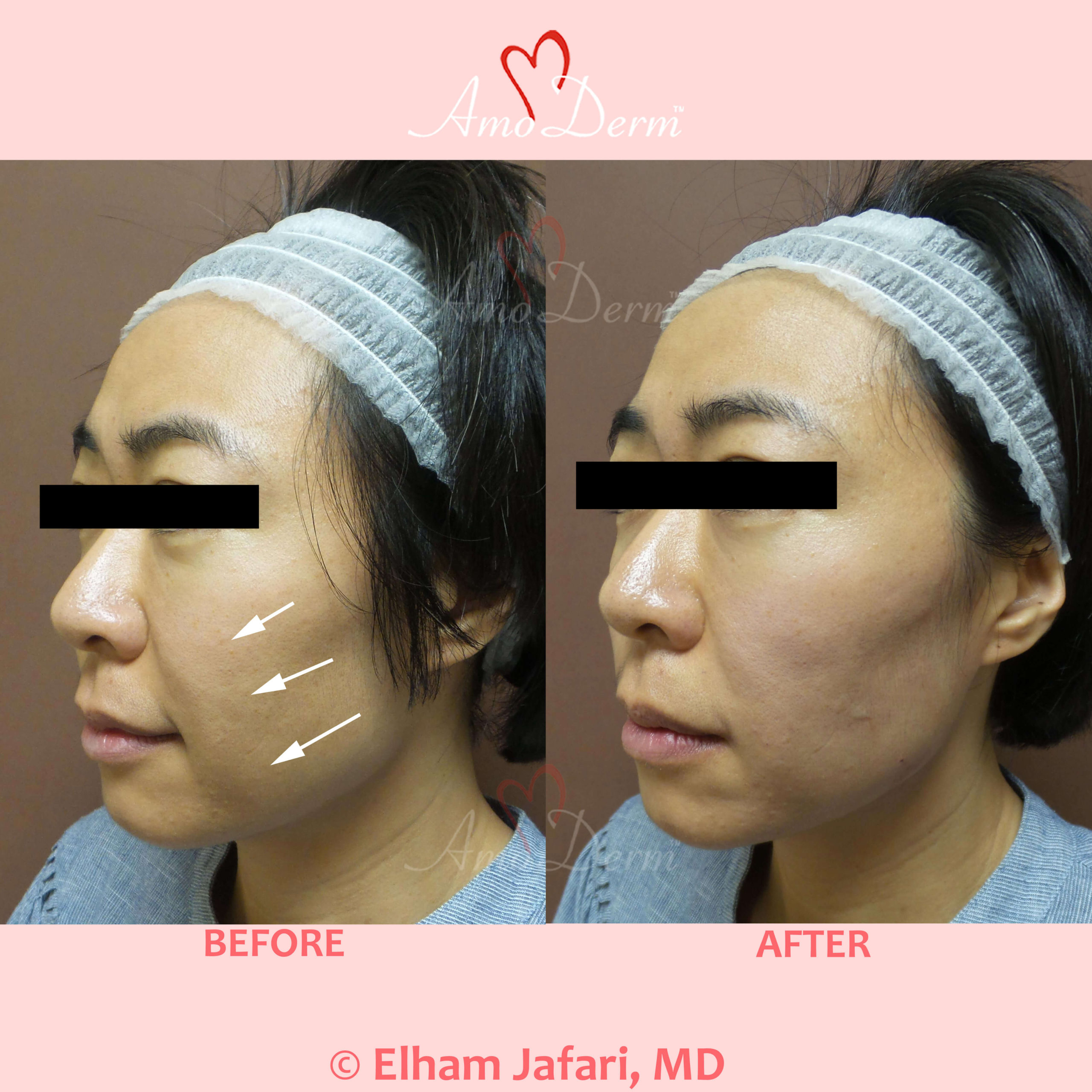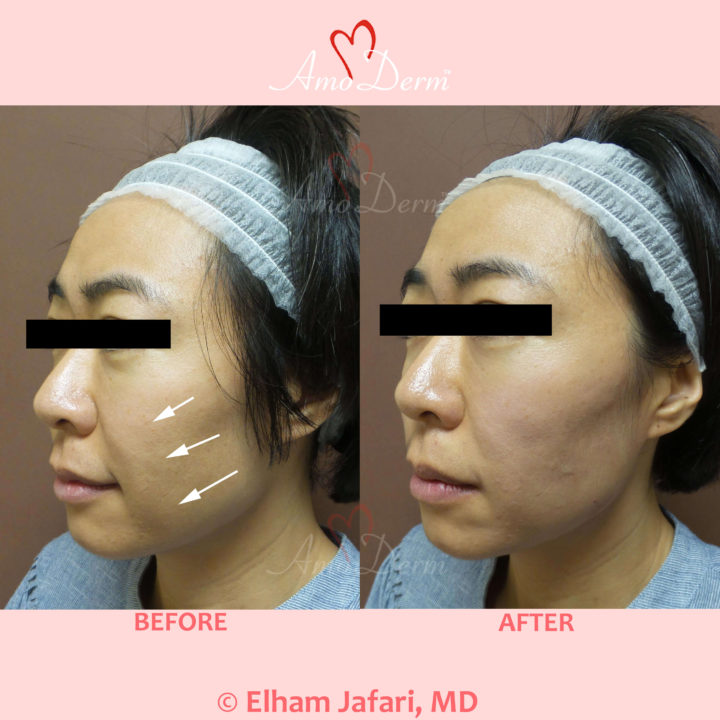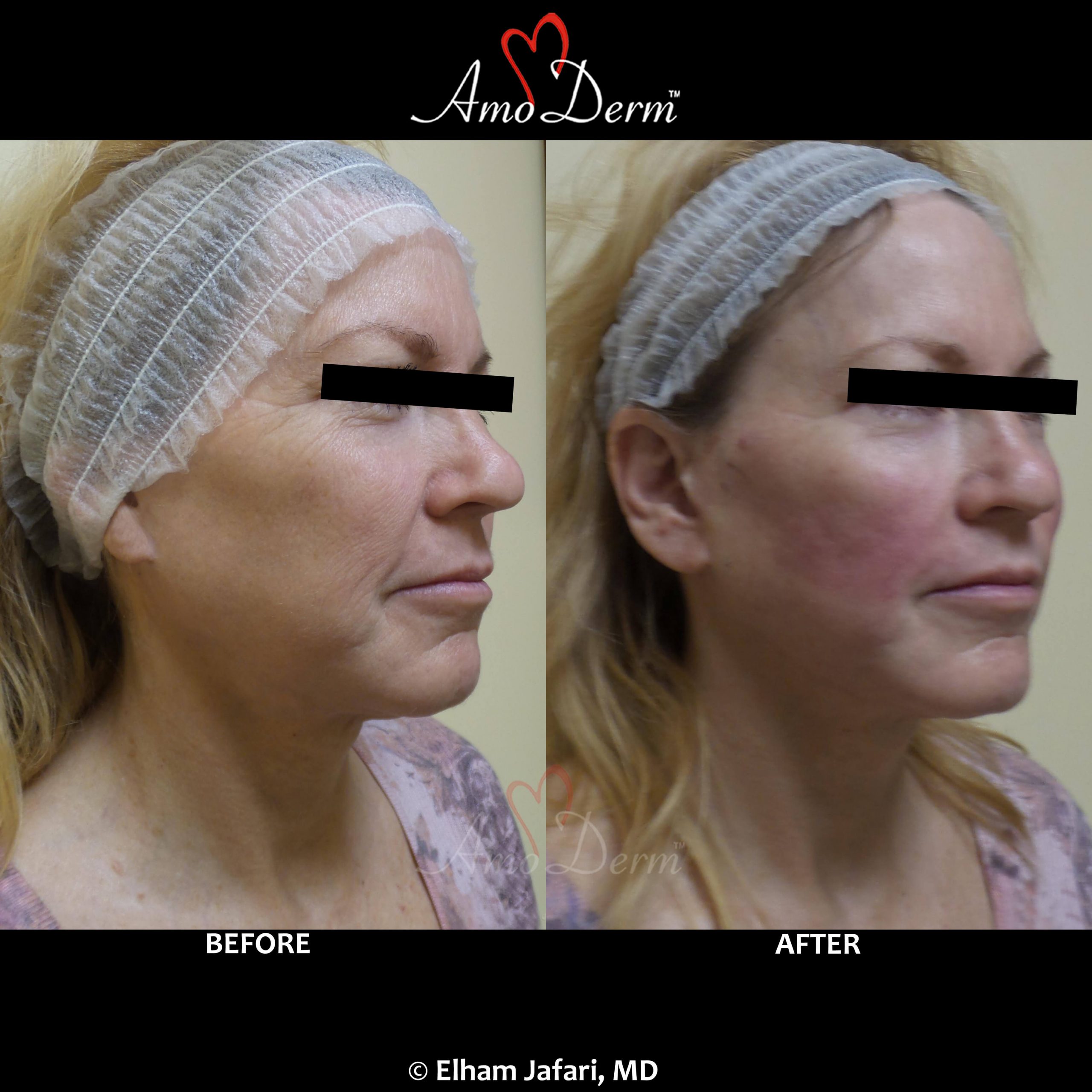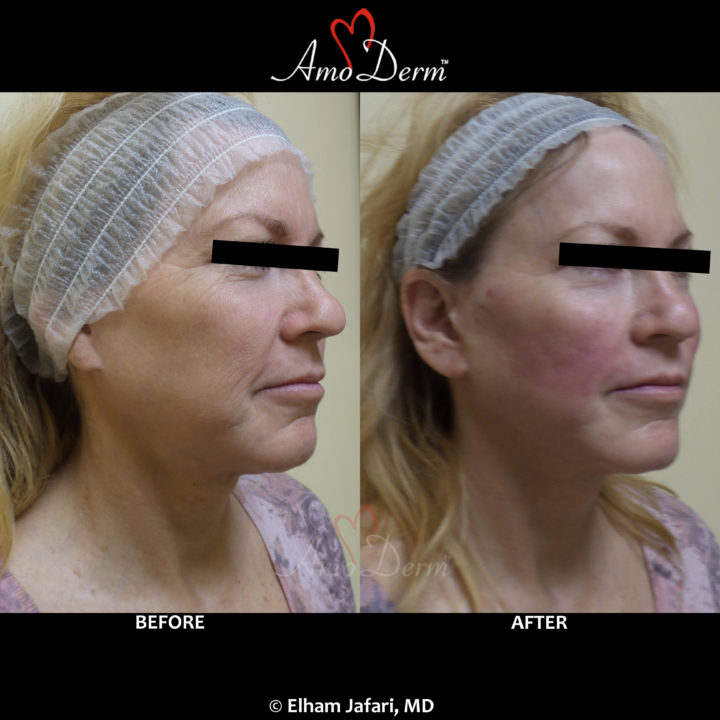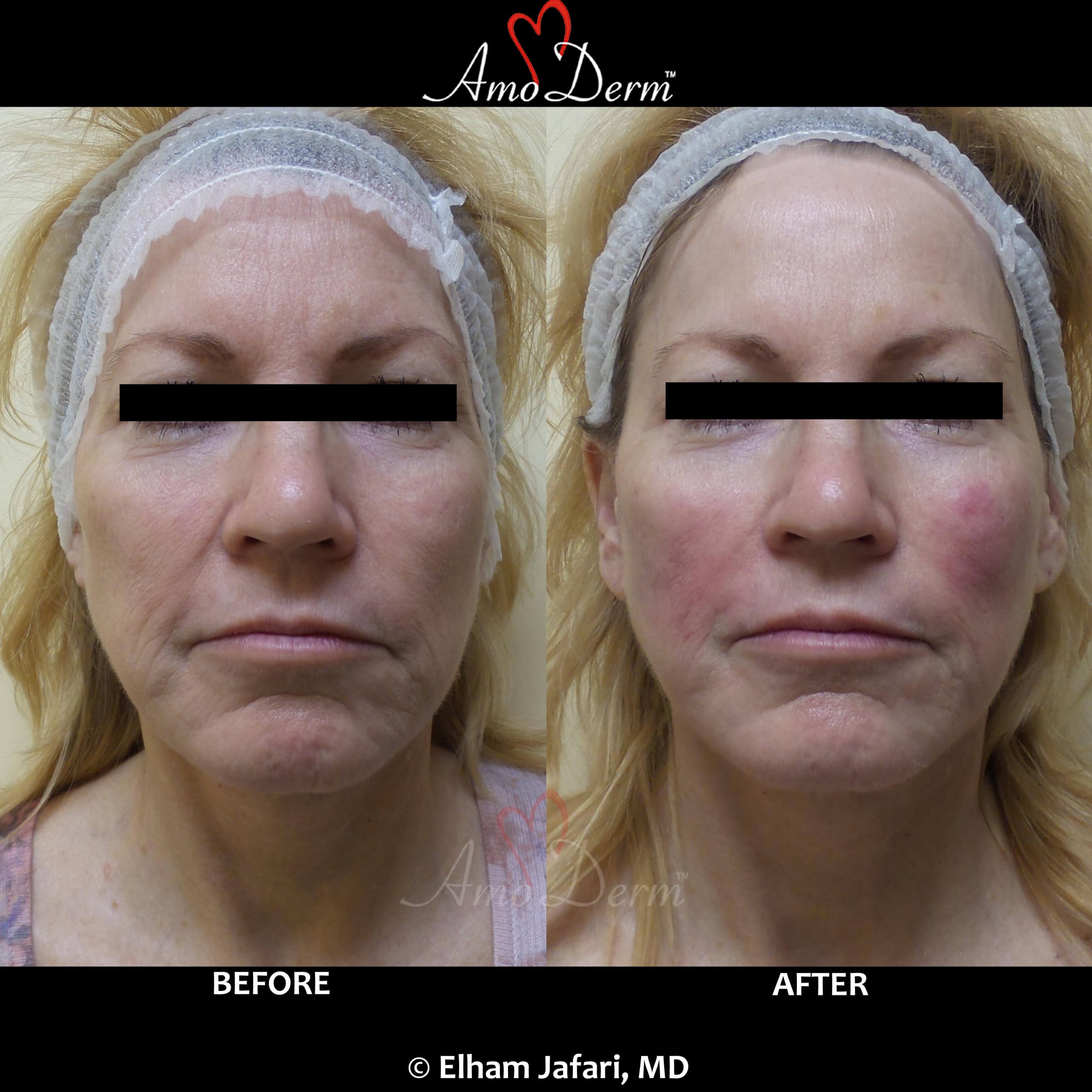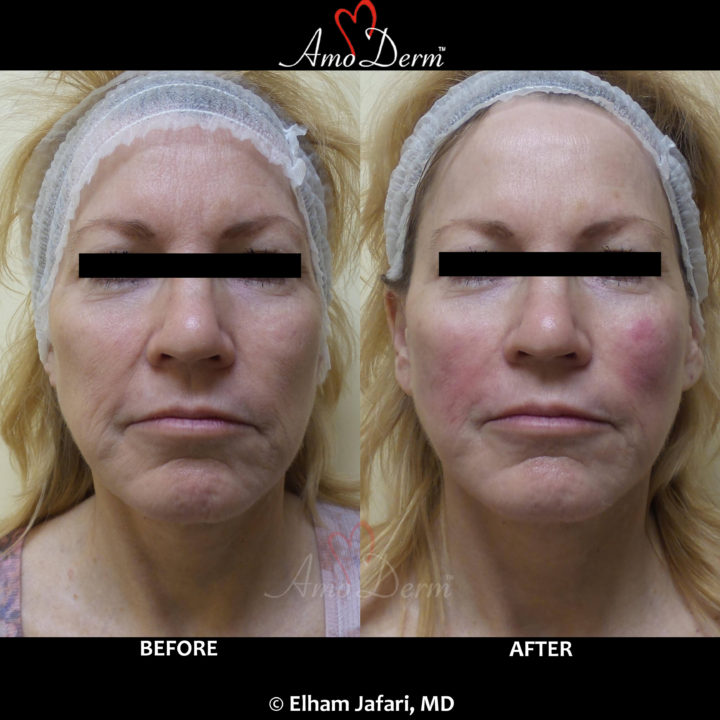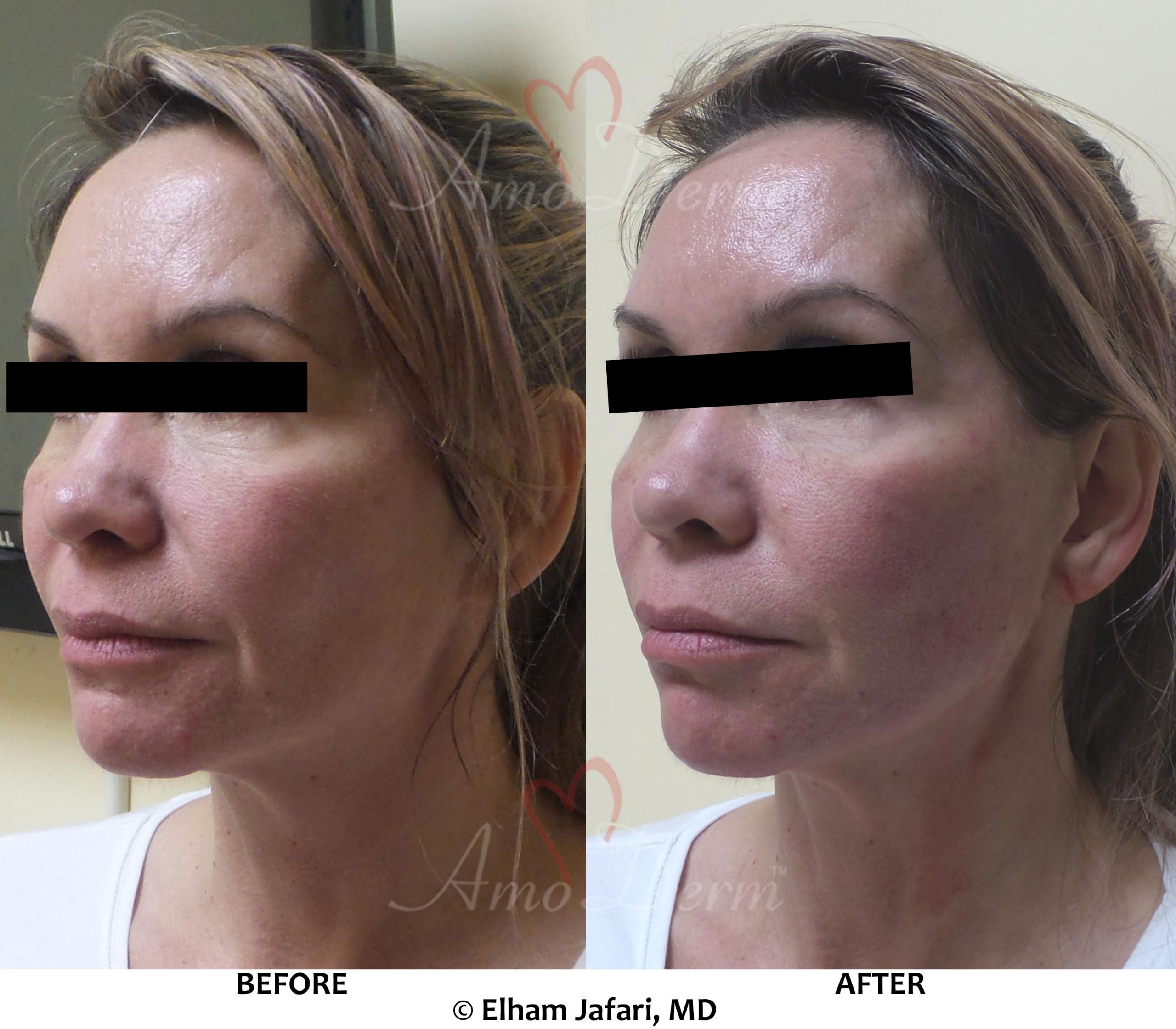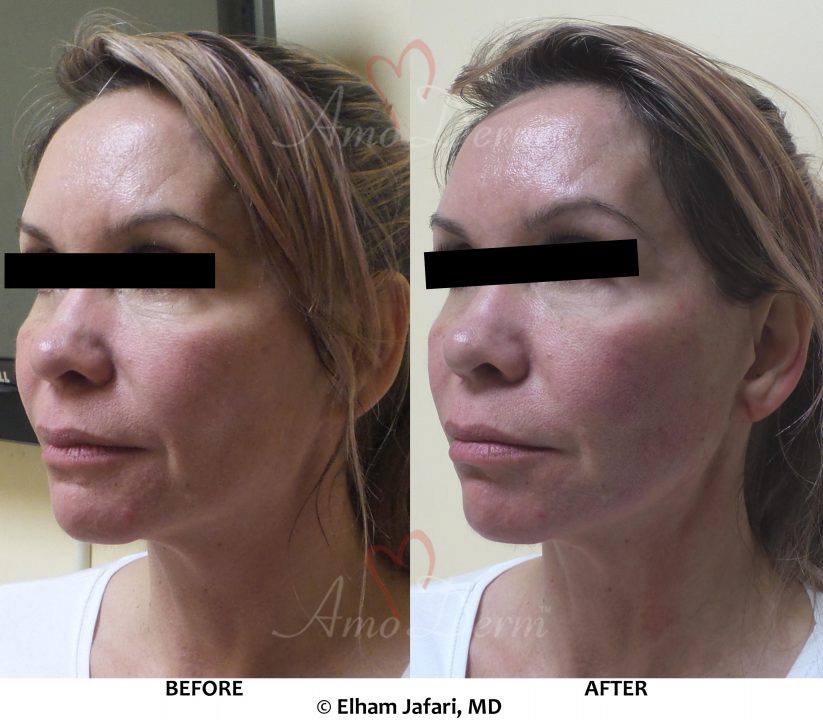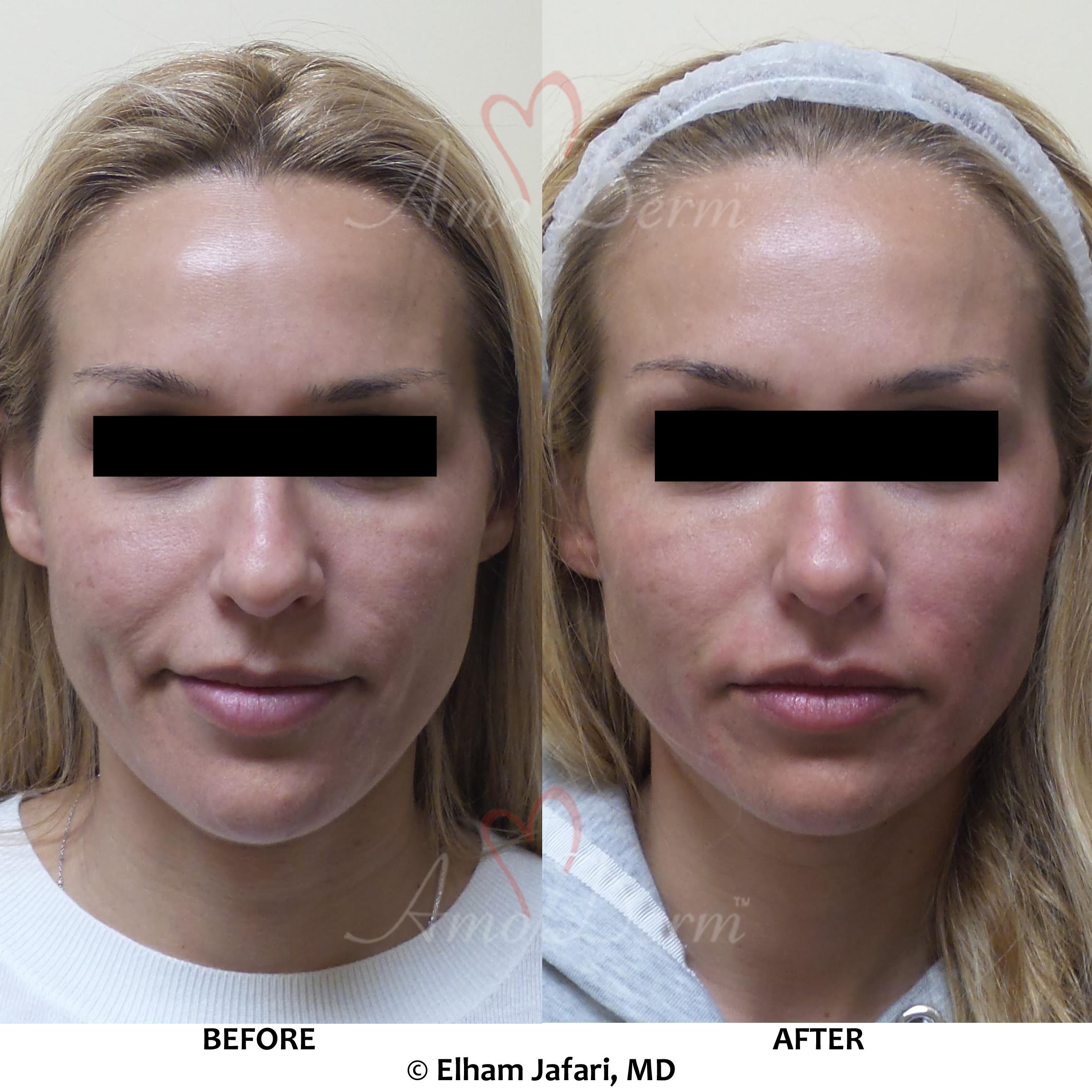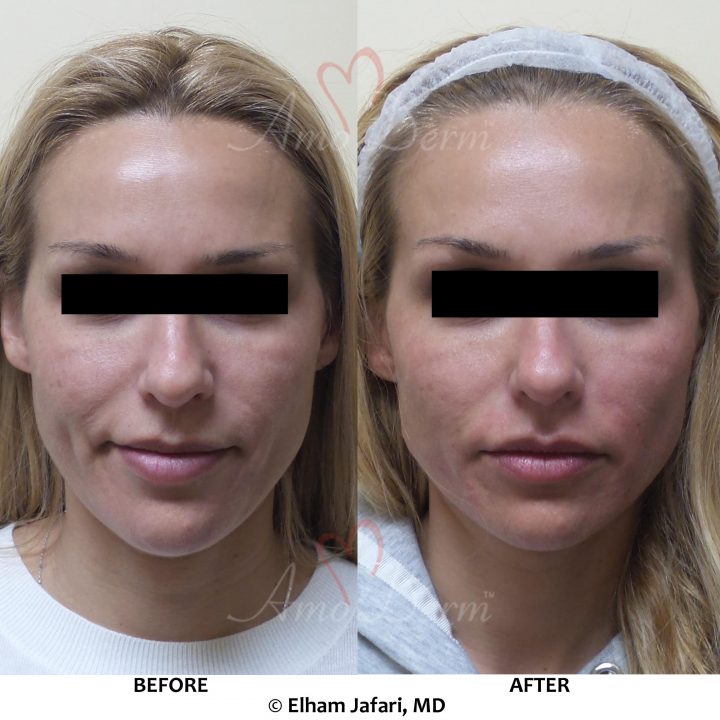If you are tired of the sagging and loose skin in your face, particularly in the lower face area around the jaw or cheeks, but don’t want to undergo surgery for a facelift, you can consider Thread Lift. Thread Lift can produce impressive results at a fraction of cost of facelift, without the painful recovery, risks (including risks of general anesthesia) and long downtime associated with the surgery. At Amoderm, we offer Thread Lift using absorbable PDO threads, and the procedure is performed exclusively by experienced physician.
What Is PDO Thread Lift?
Using PDO threads for Thread Lift has several advantages. PDO stands for polydioxanone, which is a biodegradable and fully absorbable material. PDO has been used for years to make surgical sutures that are safe to be implanted in the body (for example in heart surgery) and are intended to be absorbable. PDO threads are among the safest materials used in making sutures and stitches.
During the PDO Thread Lift, your doctor uses a needle that has been preloaded with the PDO thread and places the thread at carefully selected areas of the face. The threads work by stimulating body the produce new collagen around them, tightening and lifting the skin. Additionally, some types of PDO thread can be gently pulled by your doctor to generate lift in the desired direction.
Following the procedure, the body reacts to the PDO thread by building up new collagen around it as it works to gradually dissolve and absorb it. The body usually fully absorbs the PDO thread in 4 to 6 months without leaving any scar tissues behind. However, the collagen produced during the healing process persists and ensures a lasting lift and rejuvenating effect. While results vary from patient to patient and area to area, they typically last for a year or more.
PDO Thread Lift can be performed at various areas including:
- Jawline & Jowl
- Cheeks
- Neck
- Nasolabial folds
- Marionette lines
- Around lips
- Abdomen
- Arms
- Thighs
What Makes PDO Thread Lift Superior to Other Thread Lifts?
Thread Lift has been around and performed for years to achieve immediate rejuvenation and lift without the pain, cost and hassles of surgical face lift. The problem with the other methods of Thread Lift is the type of suture or stitches that are used. Unlike PDO Thread Lift offered at Amoderm, the standard thread lift is commonly performed using non-absorbable stitches which stay in the body for long-time and can cause all kinds of problems down the road.
The stitches used in PDO Thread Lift are biodegradable and absorbed by the body within a few months following the procedure, leaving not much behind. However, the local rejuvenating effect of the PDO threads – newly made collagen – persists as the new collagen is made by the body and it’s no different from the collagen found in the rest of the skin. Think of it as a temporary support to generate lift and stimulate new collagen in the skin, which paves the way for long-lasting results as the new collagen and connective tissue replaces the PDO thread. This approach is preferred to using standard plastic sutures which stay indefinitely in the body and can cause all kinds of issues down the road.
How is PDO Thread Lift Performed?
The PDO Thread Lift is a minimally-invasive non-surgical facelift procedure that is much safer, simpler and easier than a regular surgical facelift. The procedure is also referred to as “lunchtime facelift” given that it can be done within an hour.
First, we do the consultation to make sure you are a candidate for the procedure. Your doctor examines your face to identify the areas of sagging skin and potential volume loss.
On the day of the procedure, first, your doctor applies a topical anesthetic to numb your face. The doctor then enters a special needle under your skin, very similar to the way needles for filler injection are introduced to the skin. This special needle is hollow and carries the PDO thread inside. The doctor moves the needle carefully and slowly until it reaches the desired destination and then releases the PDO thread, as she carefully pulls out the needles. The PDO thread is left behind.
What Is the Difference between Various Types of PDO Thread?
PDO threads come in different types and shapes, which allow your doctor to choose the one most appropriate for your specific needs. Some threads are smooth and are primarily placed in the skin to stimulate body to make more collagen. They can be placed in form of a mesh for maximal coverage. The results will emerge gradually as the body works on absorbing the threads and building collagen around them.
Some other PDO threads have tiny barbs that hold the thread in place once it is inserted. Your doctor can pull this type of thread back to lift the tissues. This type of thread is most useful for areas where an additional lift is desired in addition to the new collagen stimulation.


